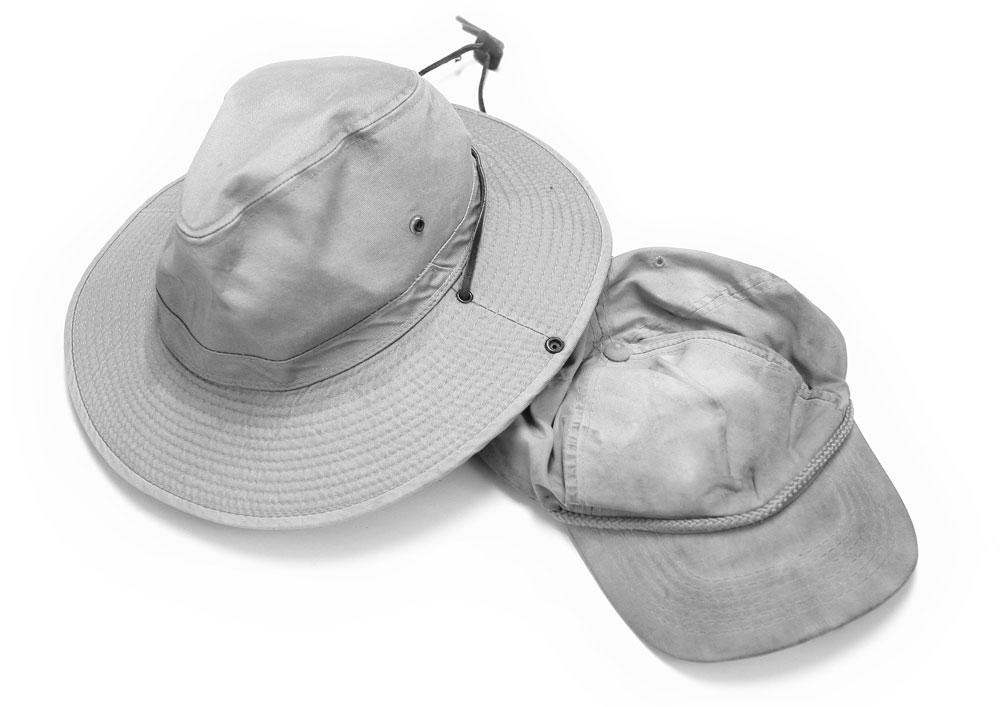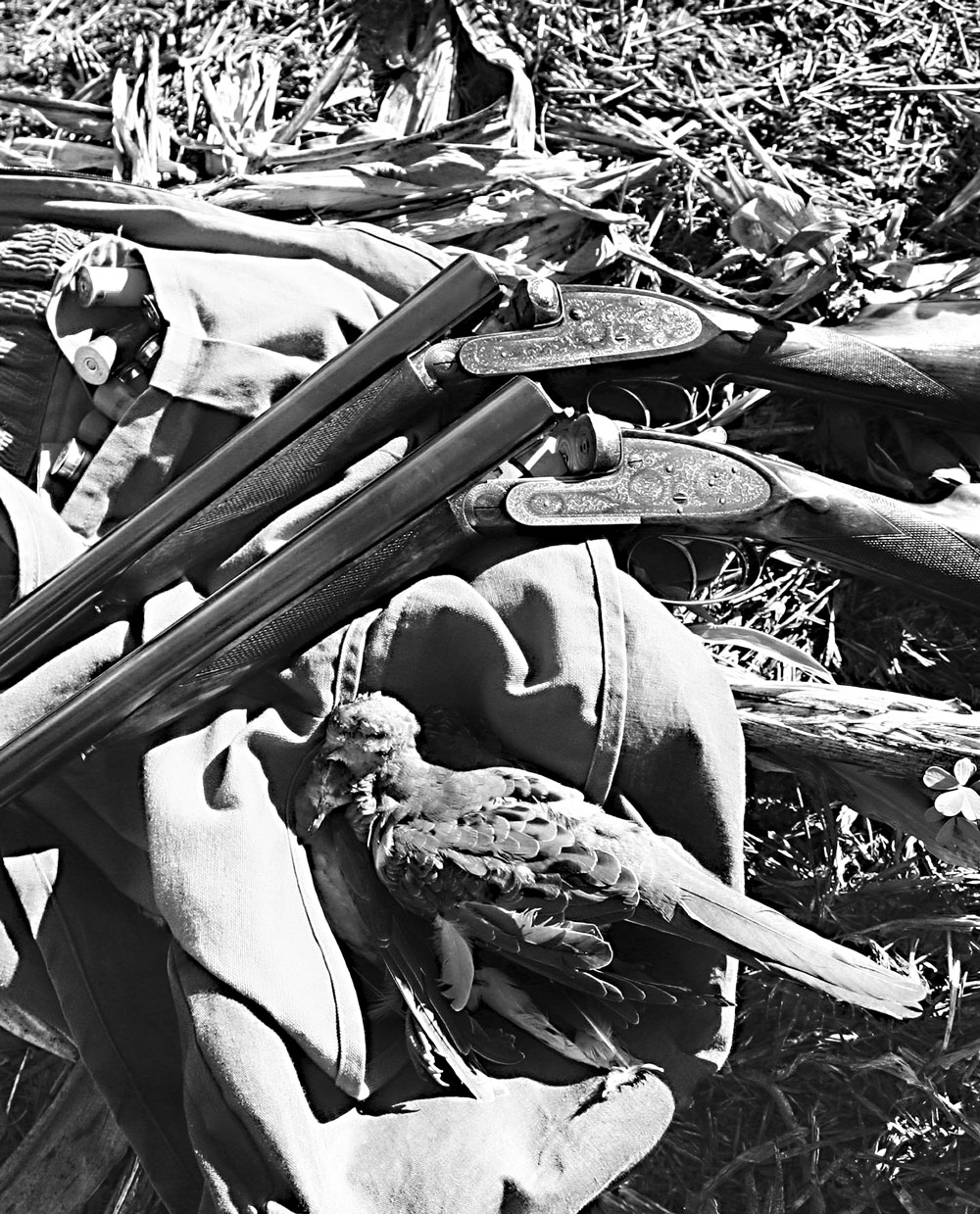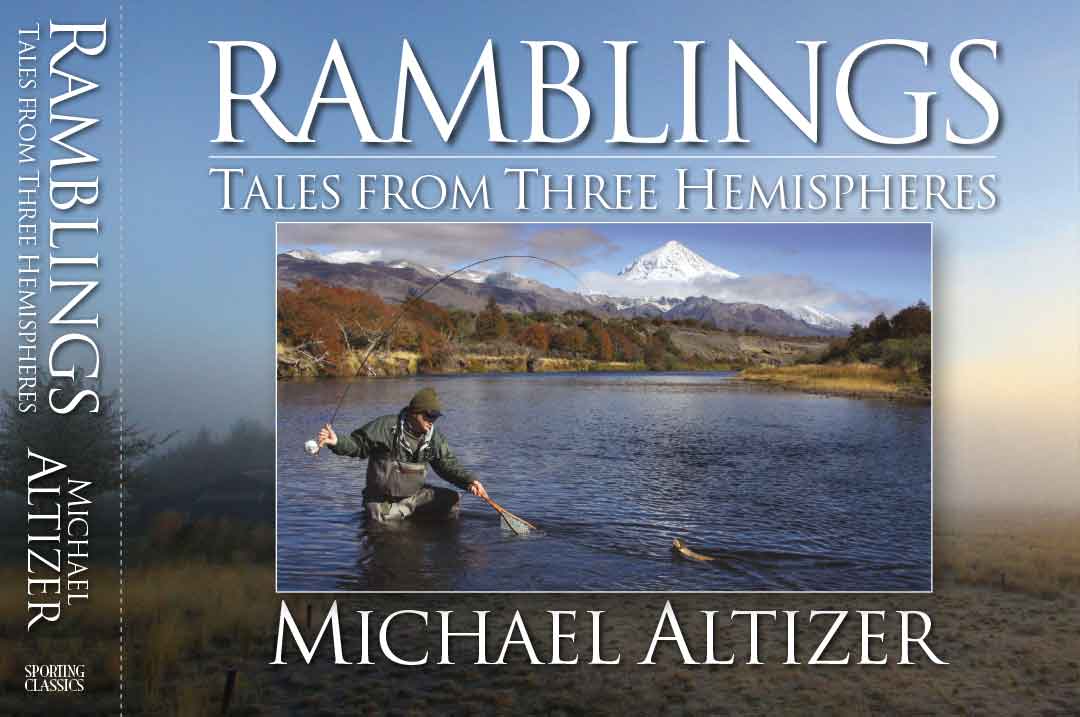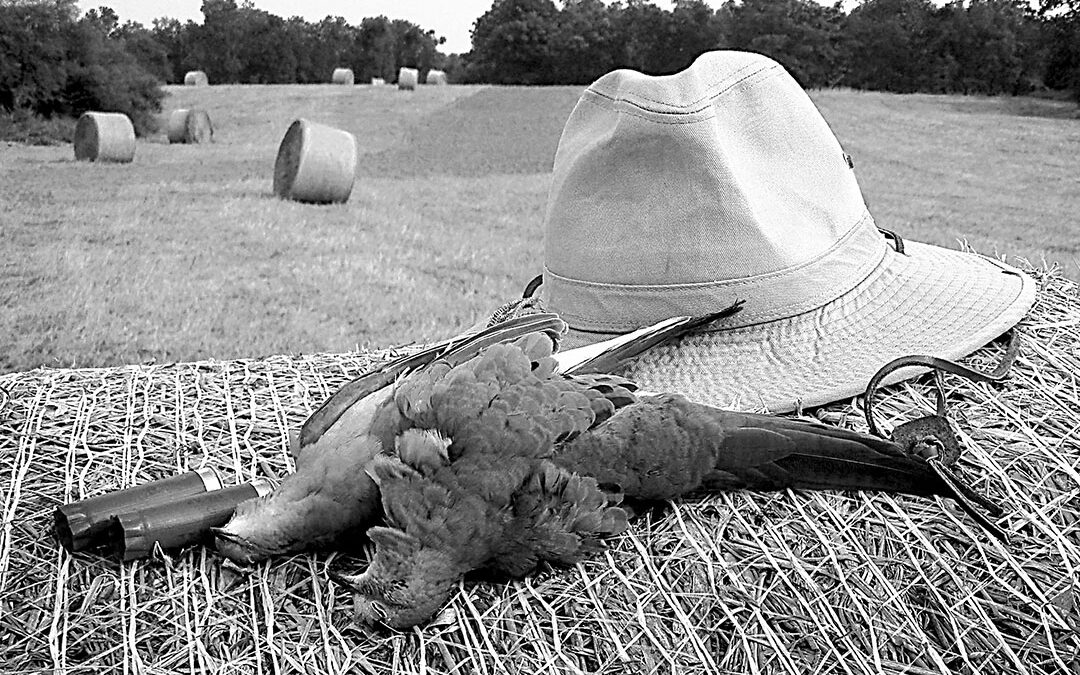— Chapter 8 —
The Walk
Two old men with two old guns, on a long walk back through time.
Early afternoon, first Saturday in September.
Two old men with two old guns, seeking shade from the hot Georgia sun beneath three ancient Chinaberry trees that stand in the northwest corner of a fresh cut millet field somewhere in the southeast section of Elbert County.
One is eleven months removed from a near-fatal heart attack, the other barely seven months returned from Africa and a stroke.
Both well along the road to recovery and once again hunting doves together.
It was my first trip afield following a long and treacherous journey back from the brink, and I’d been stringently warned not to get too tired or, especially, too hot. For his part, my longtime accomplice Bob Matthews had been deep in buffalo country in Tanzania when his vision had suddenly gone awry and his whole left side shut down twice in the span of just a few minutes, and he realized he was in trouble.
His arduous trek out of the deep Africa bush, back to Dar es Salaam, and then across the broad Atlantic home was still something of a blur to him, and so were the days and weeks that followed.
As were my own.
But now, here we sat together with our friends and our water, our ice, our shotguns and our newly restored hopes, eight miles out of Elberton, waiting for the afternoon to mature to the time when the dinner-hungry doves should begin to fly.
Our friends Brian and Bud had already ventured out across the field and into the heat to take their stations among the round bales and bushes that dotted the sun-baked landscape before us, while me ’n Bob and Duncan and Chuck sat talking about birds and dogs and guns and literature in the cool, soothing shade.
A few wisps of high cirrus clouds lightly brushed the late-summer sky as a pair of sharp-shinned hawks worked the afternoon updrafts spiraling into the air from the red, powder-dry, sun-soaked dirt that stretched three-quarters of a mile to a narrow two-lane tar-and-gravel road to the south.
The first dove of the afternoon rocketed past from the trees at our back at a little past 3:10, and a few seconds later we heard four receding shots as we tracked the unscathed bird across the brilliant blue sky. At 3:35 Duncan headed out into the heat to join Brian and Bud. Four birds later, Chuck moved his folding stool out to the edge of the shade next to the fencerow, and in a few minutes Bob and I moved out to join him.
By now we were beginning to hear sporadic gunshots from across the way, and by 4:00 Chuck had five birds down and I had taken three of my own.
Bob had yet to shoot.
“Can’t see the darn things,” he said. “Just dim little specks and blurry streaks against the sky.”
“It’s okay,” I assured him. “You’ll get the range. Just pretend they’re sand grouse.”

Bob Matthews is one of the finest wingshots I have ever known, and an even finer writer and friend. We had seen each other through good times and bad, and these past several months in particular had been challenging for us both as we’d worried about one another, while laboring to survive on our own.
We’d been looking forward to this hunt for months, eagerly anticipating the opening day of dove season, when we traditionally gather with our friends near Bob’s place in northeast Georgia. And now, beyond all reasonable odds, we were all here together.
By 5:00 the field was reverberating with gunfire as the birds began pouring in from the surrounding woods where they’d spent the afternoon, and Chuck headed out into the open with the others, leaving the shaded corner to Bob and me.
I was already well into a box of shells and had half a limit of birds in my game pouch. But with Bob’s vision still giving him trouble after his stroke, he’d only managed to take three shots so far and hadn’t hit a thing.
Now you must understand, Bob and I never keep score, whether on quail or deer or elk or pheasants or bad jokes. Or on doves. We’re as happy for each other’s successes as we are our own.
“Good shot!” Bob exclaimed as I managed to drop another bird. I eased out into the hot sun to pick up my kill, then quickly ducked back into the shade next to Bob and had a cold bottle of water from our nearby ice cooler.
“What time’s it gettin’ to be?” one of us asked.
“Easin’ on toward six, I guess,” the other speculated, as distant gunfire continued its cadence from out in the field before us.
The shadows began taking on a warm, plum-colored hue as they stretched farther and farther to the east.
“Just can’t see ’em like I used to,” Bob lamented.
Mind you, he wasn’t complaining or making excuses, just sharing his day, as he always does so well. Whether from Georgia or Tennessee, New Mexico or Namibia, Patagonia or Alaska, Bob and I have shared our days, our spirits, our prayers, and our brotherhood with one another for years. And today was no different.
So here we sat, me with my little A. Hill and Bob with his old Parker, both of them 16-gauge side-by-sides.
Nine birds between us.
And all of them, quite uncharacteristically, mine.
The late-afternoon breezes were beginning to build, and I stood for a moment and stretched and took another swig of ice. I hadn’t felt this good in months. But by now I was getting low on shells, and as I started to make my way over to the truck to re-supply, I had an idea.
So I turned back to Bob, took his old Parker from him without asking, unloaded it, and headed back toward the truck, where lay as fine a pair of 12-bore Purdey shotguns as you’re likely to find, each waiting faithfully in its big oak-and-leather trunk case.
I slid the two empty 16s back into their respective gun sleeves and laid them in the front seat, uncased our Purdeys, eased them together, stuffed two fresh boxes of low-brass 8s into my vest, and strode back over to Bob.

“Let’s take a walk,” I said.
I’ve never seen such a sly and eager grin.
Bob stood and took his gun from me without saying a word. I emptied one box of shells into his tattered old vest and the other into my own as we headed up the shaded fencerow, through the open gate and out into the late-afternoon sun.
Now I’ll freely admit, this would be a far better story if I told you that we had walked only a few yards before Bob dropped his first dove of the day.
But the truth is, he missed his next four shots.
But then, it was as though God and the old Purdey itself took charge, and once Bob tumbled his first bird, it was obvious, to me at least, that the doves of Elbert County were in trouble.
For the next hour and a half, doves fell from that clear Georgia sky like Newton’s apples. I even dropped a few more myself. Duncan and Chuck and Brian saw us coming from a long way off, and when we eventually got to them, Bob was well on the way to his 15-bird limit—though I had never before known a full limit of birds to be all that important to him.
But today it was important—perhaps for the first time in his life.
And by the time the sun was brushing the tops of the trees along the western horizon, and Chuck ’n Dunc’ and the boys were all on the road home to South Carolina, Bob and I had wandered back across the field to that little grove of Chinaberry trees, where we sat long into the evening field-dressing our doves and watching the sun slip from the sky as the first stars of the night began to appear.
Two young men with two old guns, our shell vests empty, but our souls and spirits and game pouches quite full.

Click here to order your copy today!
The author always welcomes and appreciates your comments, questions, critiques, and input. Please keep in touch at Mike@AltizerJournal.com.

